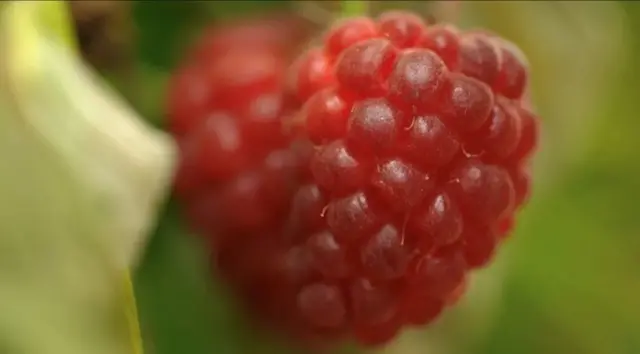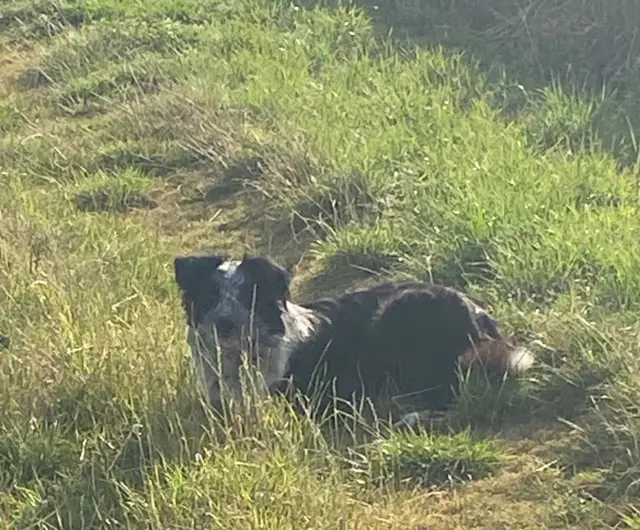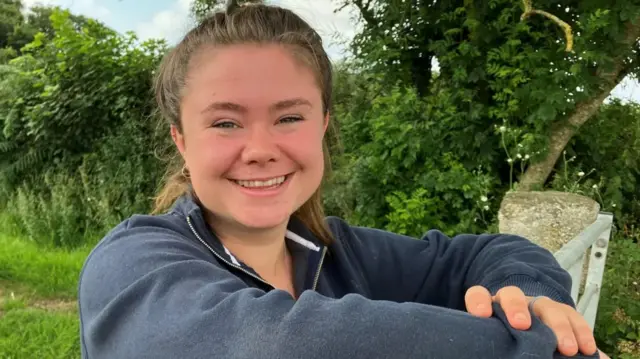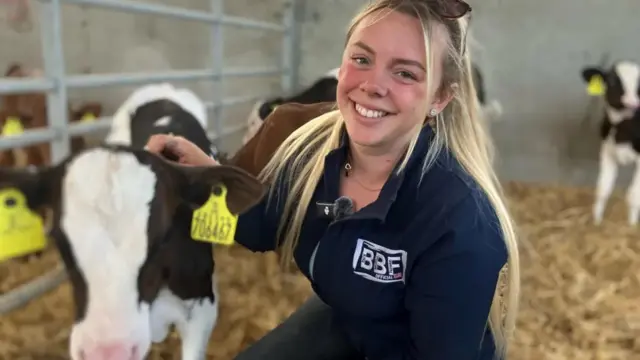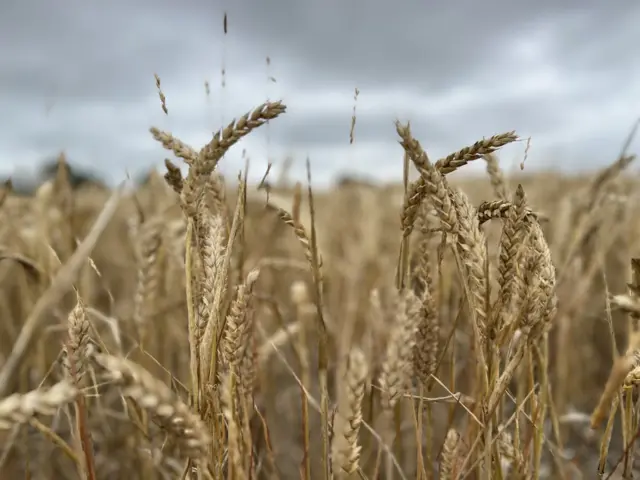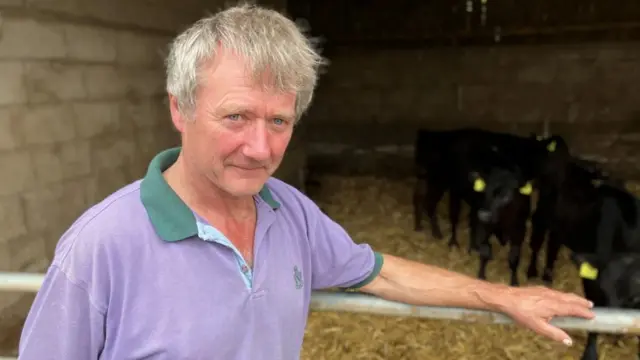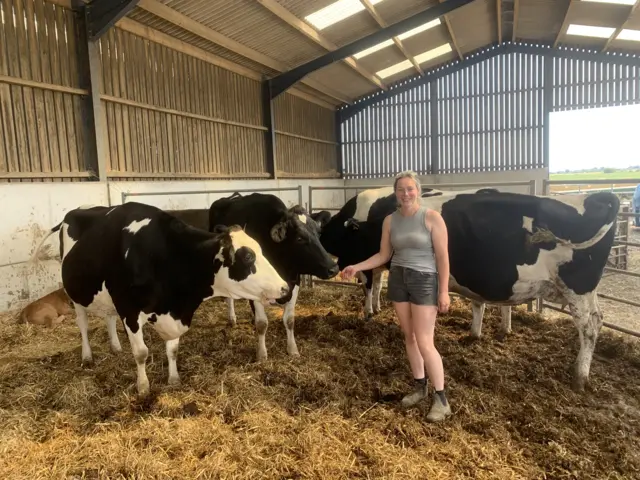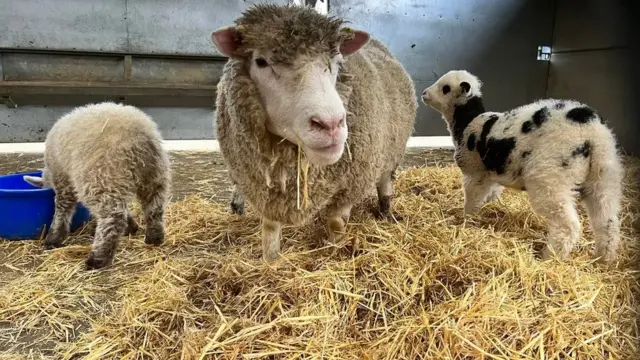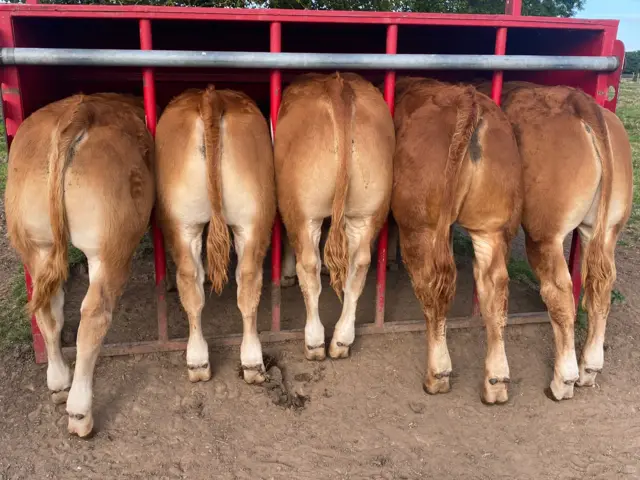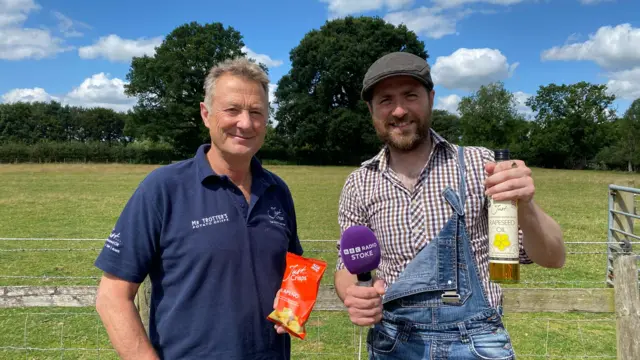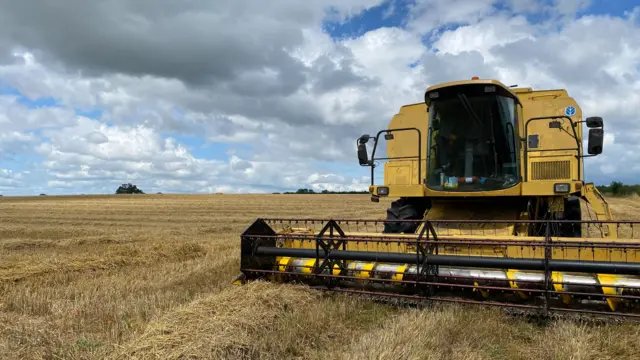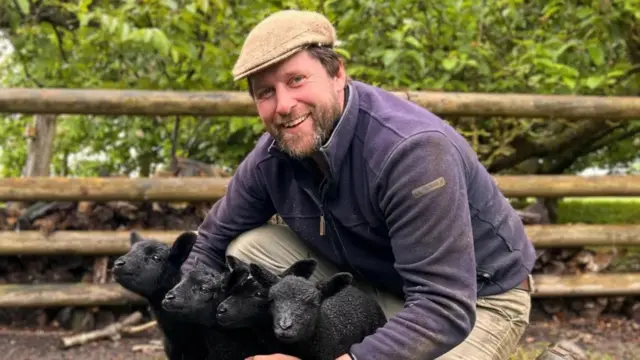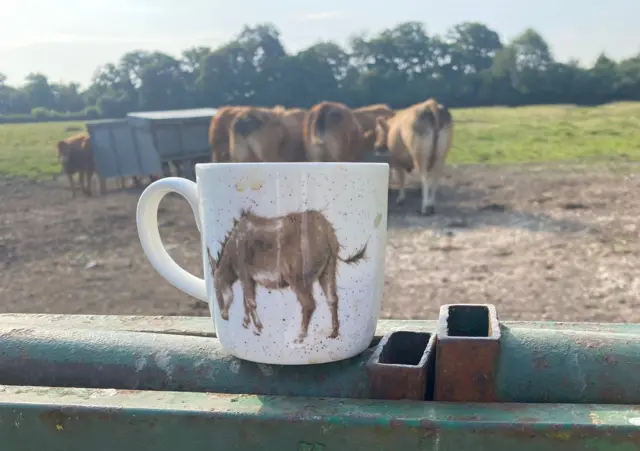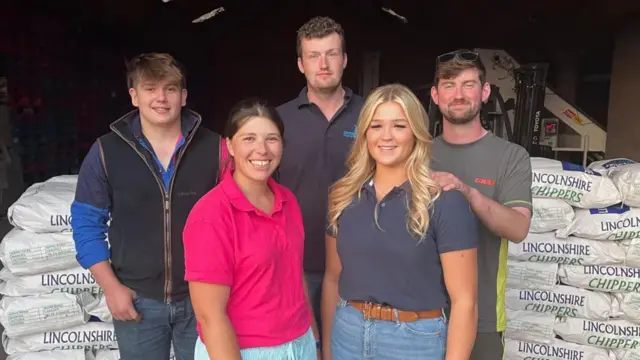'Action to combat flooding is needed'published at 11:19 BST 8 August 2024
 Sharon Edwards
Sharon Edwards
Political Reporter, BBC Radio Lincolnshire
While driving to one of her potato fields, farmer, Kate Armstrong, points to the fields growing cereals.
“There’s a mismatch in colours because we had to plant at different times following the flooding,” she says.
About 200 acres of land at Abbey Farm in Bardney, near Lincoln, was under water following record rainfall last October.
“The cereal harvest has been more impacted than the potatoes,” Kate says.
“Two years ago we’d already harvested our wheat and this year we’re sat waiting."
 Image source, Sharon Edwards/BBC
Image source, Sharon Edwards/BBCKate speaks out about the impact of flooding
She hopes that harvesting for cereals does not overlap with the potato harvest which, this year, is due around mid-September.
“We plant potatoes normally mid-April but it was getting onto the end of April this year,” says Kate.
She says farmers across Lincolnshire are involved in discussions with each other and industry bodies about preventing more flooding.
“There’s a lot that we feel can be done on the waterways to prevent it. There’s definitely more maintenance that can be done.”
